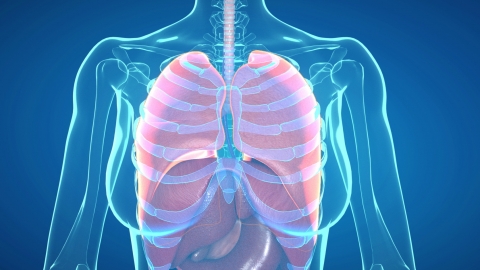What are the causes of pulmonary nodules?
Generally, the causes of pulmonary nodules may include hereditary factors, long-term exposure to harmful substances, lung infections, tuberculosis, and inflammatory pseudotumors. These conditions require symptomatic management through general treatment, medication, or surgical interventions. If experiencing any discomfort, it is recommended to seek timely medical consultation for appropriate treatment as guided by a physician. Detailed explanations are as follows:

1. Genetic Factors
Familial hereditary diseases or gene mutations may increase the risk of developing pulmonary nodules. This risk typically manifests as abnormal lung tissue structure or altered metabolic function, leading to nodule formation. Close monitoring of nodule changes and regular CT scans are usually necessary.
2. Long-Term Exposure to Harmful Substances
Long-term exposure to air pollution, secondhand smoke, asbestos, and other harmful environments can result in the deposition of these substances in the lungs, irritating lung tissue and potentially leading to the formation of pulmonary nodules. Symptoms may include coughing, sputum production, and difficulty breathing. It is recommended to avoid exposure to harmful substances, maintain fresh air quality, and quit smoking while limiting alcohol consumption.
3. Lung Infection
Bacterial, viral, or fungal infections can trigger inflammatory responses in the lungs, with white blood cell accumulation and the release of inflammatory mediators causing localized tissue damage and subsequent repair processes that may result in nodule formation. Symptoms may include fever, cough, and sputum production. It is recommended to follow medical advice in using medications such as amoxicillin-clavulanate potassium tablets, oseltamivir capsules, and itraconazole capsules to alleviate symptoms.
4. Tuberculosis
Infection with Mycobacterium tuberculosis can lead to pulmonary nodules. Following infection, the body's immune response forms granulomas, which may eventually develop into nodules, typically accompanied by symptoms such as low-grade fever, night sweats, and weight loss. It is recommended to follow medical guidance in using medications such as isoniazid tablets, rifampicin capsules, and streptomycin sulfate for injection to alleviate symptoms.
5. Inflammatory Pseudotumor
During chronic inflammation, excessive proliferation of inflammatory cells and fibrous tissue within the lung may form localized masses, potentially causing symptoms such as difficulty breathing and chest pain. It is recommended to undergo surgical treatment, such as thoracoscopic surgery or open thoracic surgery, under the guidance of a physician.
In daily life, maintaining a healthy lifestyle, avoiding exposure to harmful substances, and undergoing regular medical checkups for early detection and treatment of pulmonary nodules are strongly advised.
References
[1] Cao Simiao, Ma Zuofeng. Experience of Ma Zuofeng in treating pulmonary nodules [J]. Hubei Journal of Traditional Chinese Medicine, 2025, 47(03): 26-28.
[2] Li Mengcong, Wang Na, Wang Guangdong, et al. Misdiagnosis analysis and literature review of pulmonary nodules presenting primarily with chest tightness and shortness of breath [J]. Clinical Misdiagnosis & Mistherapy, 2025, 38(04): 11-16.





